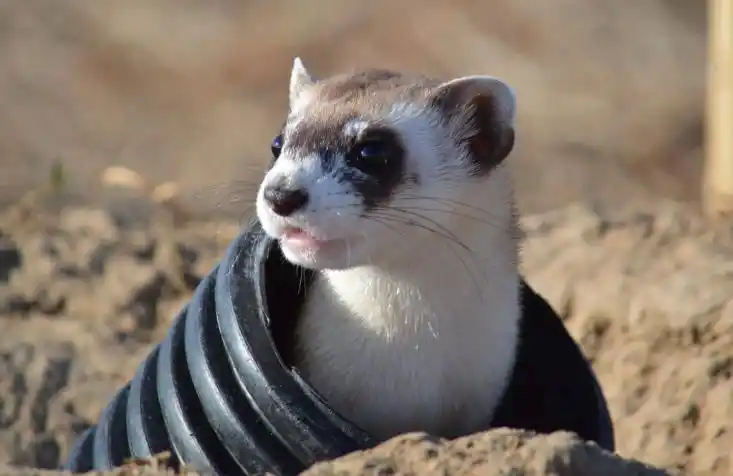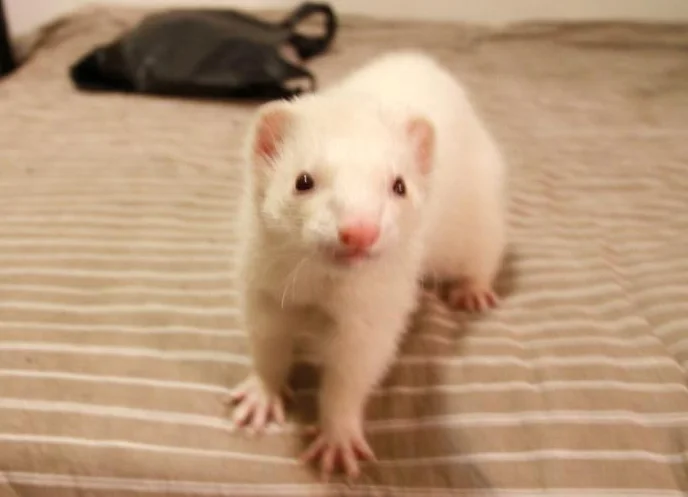Variety Overview
English Name: Dark Eyes Ferret
Origin: Denmark
Black-eyed ferrets have white fur covering their entire bodies, with a subtle black stripe along their backs that blends into the white fur and isn’t very noticeable. Their noses are pink, and those without any black fur are considered top-quality.
Angora pet ferrets, imported from Denmark, are currently the most common type of pet ferret in the country. These ferrets are known for their strong curiosity and cheerful disposition. They love playing with humans and due to their endless curiosity and adventurous nature, they can’t sit still for even a moment. They frequently crawl behind or under furniture to explore new things, collect items they like, and hide them in secret places. They also establish their own territories, enjoy being pampered, love playing around, and are quite intelligent—making it easy for them to bond with people. They often need someone to play with them. They particularly enjoy accompanying people on outings, so you can either put a harness on them or place them in an outdoor cage before taking them for a walk.

Feeding Techniques
Angora ferrets are social creatures who enjoy human interaction but prefer the company of their fellow ferrets. With adequate space, keeping multiple ferrets together is manageable. Prolonged isolation or limited activity can lead to stress-induced obesity and health issues due to lack of exercise. Therefore, it’s essential not to confine them in cages constantly but allow frequent playtime outside the cage. Their energetic nature means there are plenty of ferret-specific toys available on the market to keep them amused.
Ferrets have a unique digestive system compared to cats and dogs; their digestive tracts are very short. Thus, it’s critical not to feed them cat or dog food regularly. Being obligate carnivores, their diet should consist of over 90% meat which must be fresh and free from spoilage. Due to their popularity as pets, specialized ferret food has been developed early on that meets their nutritional needs while being highly palatable. Additionally, providing constant access to clean water is vital and should never be neglected.
Domesticated over generations, ferrets can no longer survive in the wild. Responsible pet owners should keep them indoors and ensure there are no escape routes through small openings since these curious creatures love exploring narrow passages. To prevent potential dangers or accidental escapes outdoors, it’s advisable to seal such openings and provide tube-like toys instead—ferrets will find these just as entertaining.
